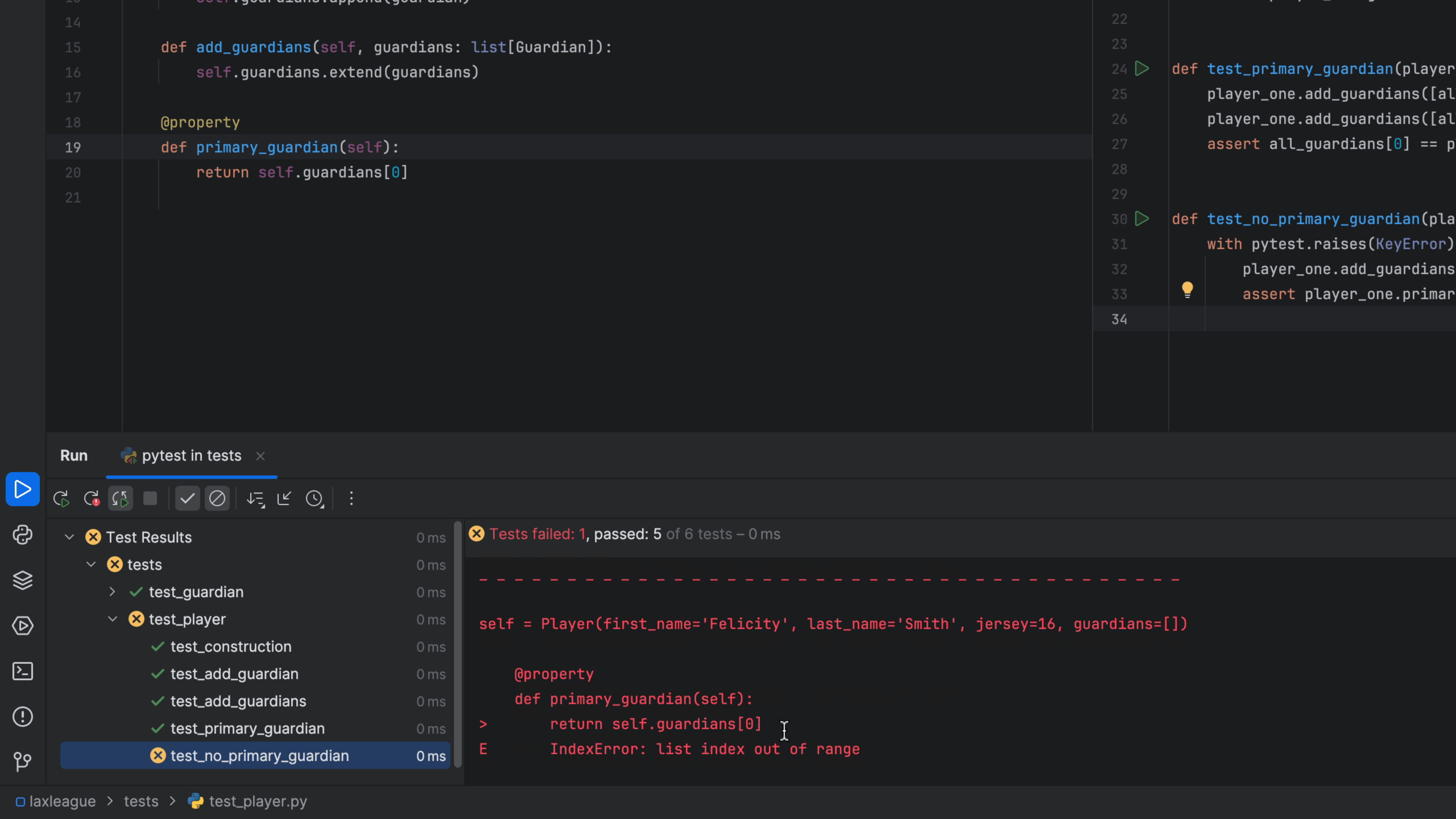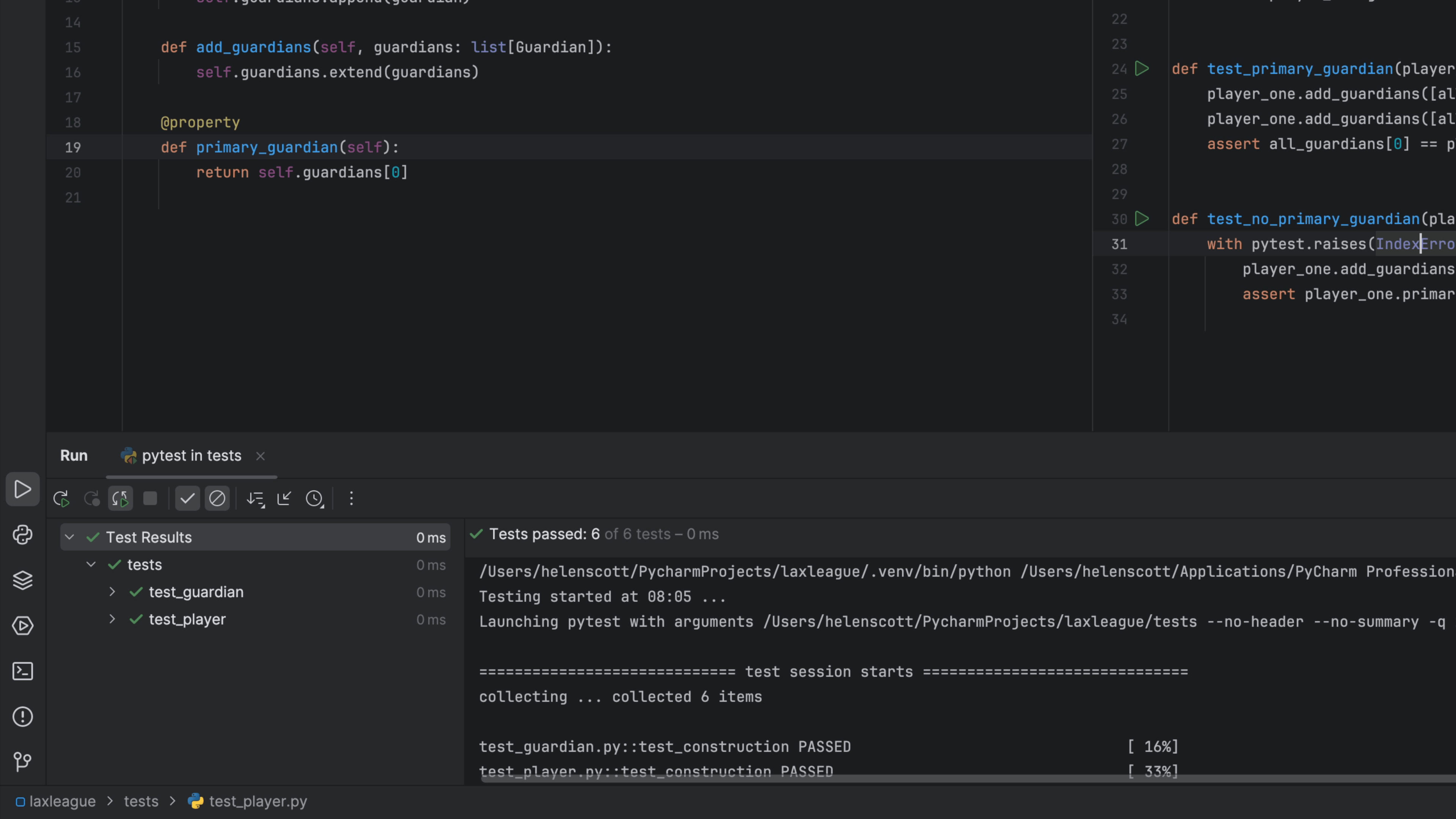Testing for Exceptions
Write tests which ensure exceptions are raised when expected.
In the previous step we showed how to debug a problem. Let's show how to write a test that recreates the problem -- and ensures our Python code handles it correctly -- by using pytest exception assertions. We'll then refactor the code to detect that situation and return None, writing tests before doing the refactoring.
Testing Exceptions
We start, as always, with a test.
We're adding a new test test_no_primary_guardian in test_player.py, to detect the case when no guardians have been assigned:
import pytest
def test_no_primary_guardian(player_one):
with pytest.raises(KeyError) as excinfo:
player_one.add_guardians([])
assert player_one.primary_guardian is None
As we type the code above, don't forget to use autocomplete to let PyCharm generate import pytest for you. This test uses a special context manager facility in pytest, in which you run a block of code that you expect to raise an exception, and let pytest handle it. You test will fail if the exception is not raised. The context manager optionally lets you add as exc to then do some asserts after the block, about the nature of the exception value.
We can see that an exception is raised, but not the one we were expecting:

We expected an IndexError, but we got a KeyError but we got an IndexError.
If we change the exception type in our test code to IndexError:
def test_no_primary_guardian(player_one):
with pytest.raises(IndexError) as excinfo:
player_one.add_guardians([])
assert player_one.primary_guardian is None
Our tests will pass again:

Return None Instead
Perhaps we decide that raising an exception isn't a good pattern. Instead, we want to detect if self.guardians is empty, and if so, return None. To start, let's...write a test. Or in this case, change that last test:
def test_no_primary_guardian(player_one):
assert player_one.primary_guardian is None
Good news, the test fails. Remember to remove the now-unused import pytest via PyCharm's Optimize Imports ⌃⌥O (macOS) / Ctrl+Alt+O (Windows/Linux).
We now change our implementation in player.py to correctly return None:
@property
def primary_guardians(self) -> Optional[Guardian]:
return self.guardians[0] if self.guardians else None
Python type hinting uses Optional when the value might be None. Our tests now pass which means we did the refactoring safely.
PyCharm TDD mode reminder
Before I leave you, here's a quick reminder of how to configure PyCharm in TDD mode. Use Split Right to move your tests to the right so you have code on the left, tests on the right and your Run tool window at the bottom. You can configure your tests to run automatically when something in your code or tests change. Most people like this delay to be around 3 seconds so you can spot and fix errors quickly, but as always, the choice is yours!
